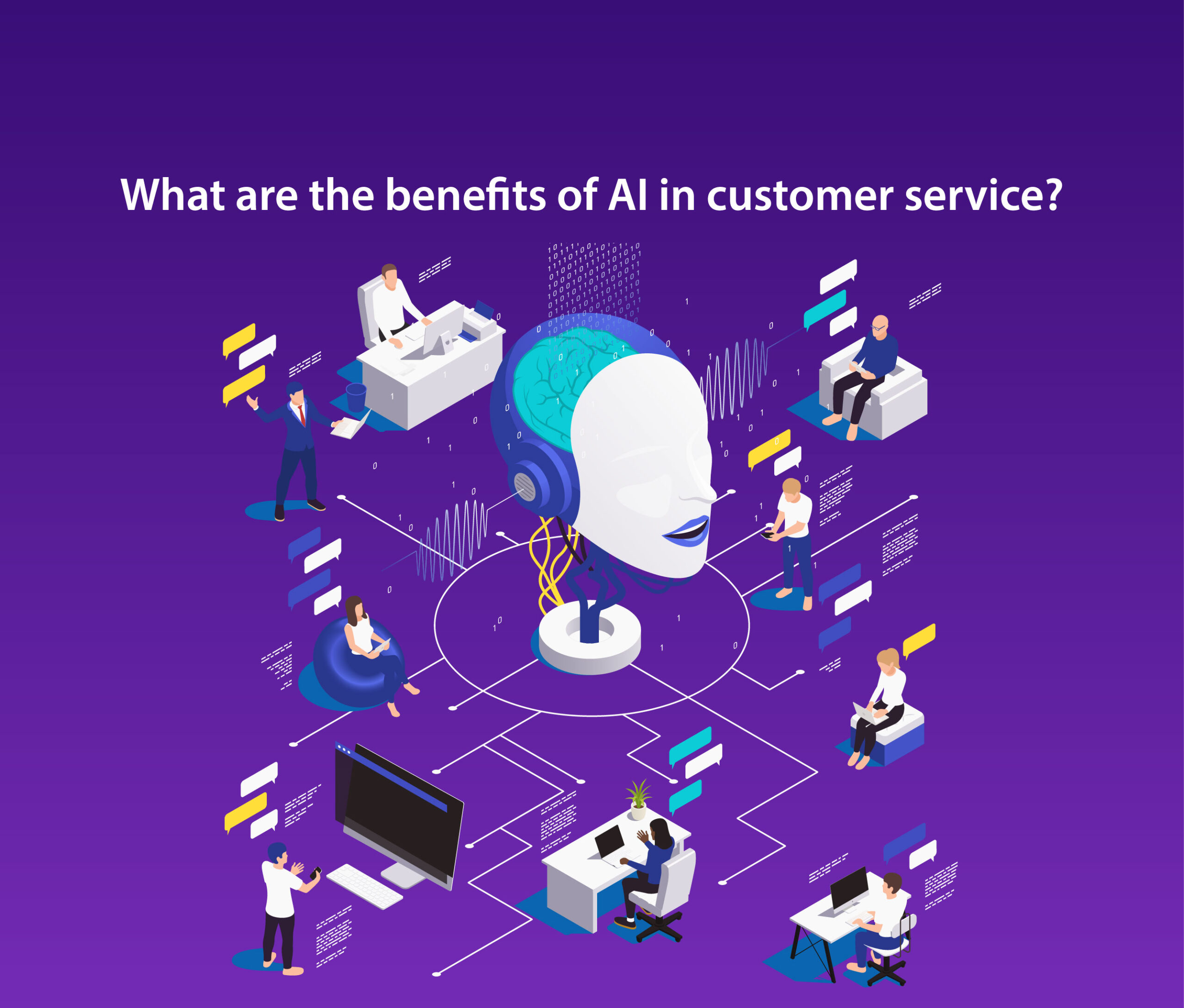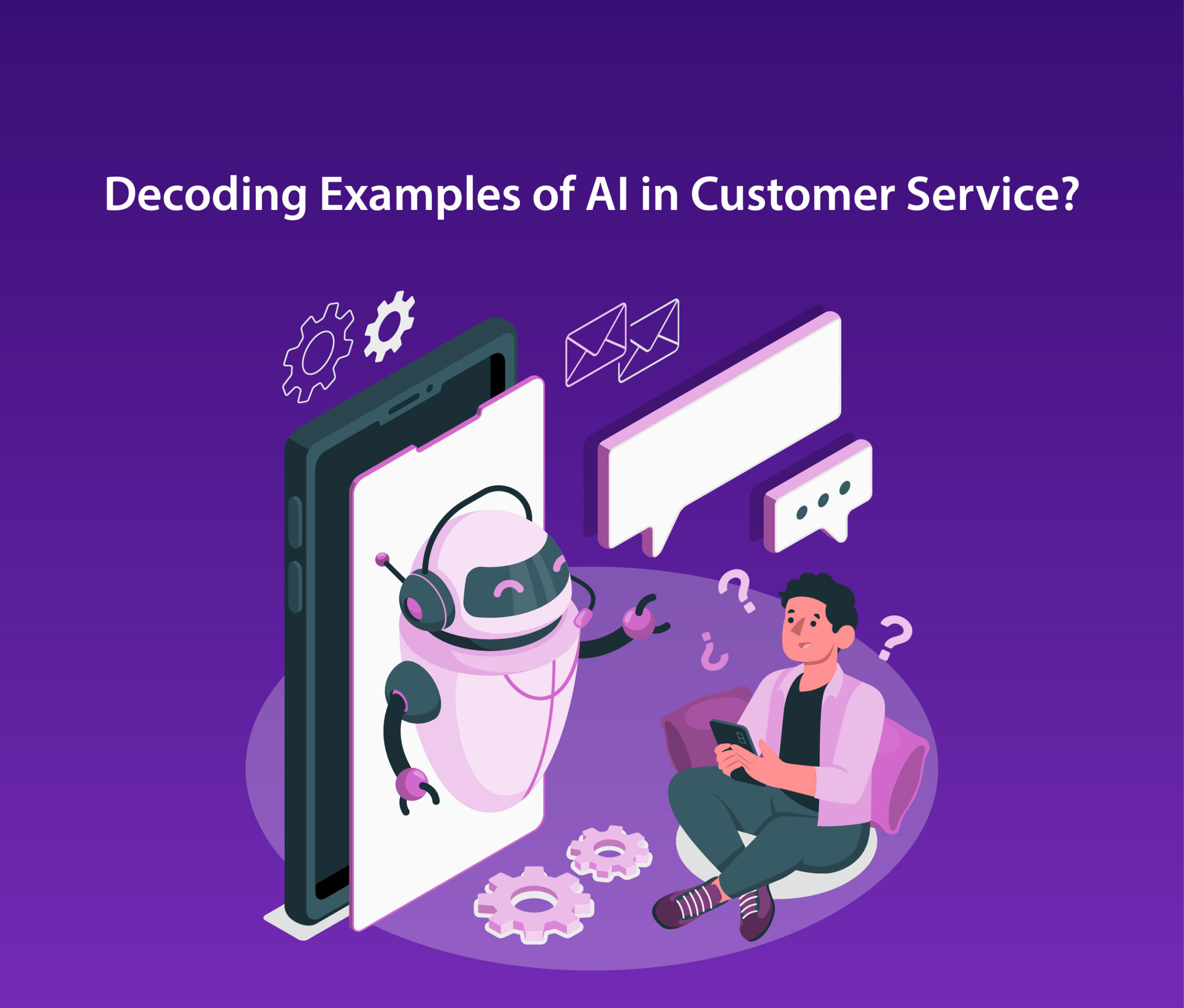The AI market is projected to be worth nearly $2 trillion by 2030, with a growing focus on AI in customer service. Modern technology has expanded beyond chatbots for customer service improvement. All this has created a specific use case for AI in customer service.
In this fast-paced world, consumer expectations are high, with 72% prioritizing faster service for loyalty. Service agents struggle to balance speed and quality, resulting in a 19% turnover rate in service organizations.
While predictive AI is familiar, generative AI is gaining attention for its potential in customer service. Understanding AI’s functions, benefits, and implementation is crucial for both service professionals and customers. So, let’s get started.
What is AI in customer service?
AI in customer service offers diverse applications. Embedding AI-powered chatbots across channels instantly streamlines the customer service experience. These chatbots go beyond answering common questions; they greet customers, provide knowledge base articles, guide them through business processes, facilitate field technician dispatch for field requests, and route complex queries to the right person.
Consider the customer perspective: needing help to return a pair of shoes, starting an online chat, and waiting 30 minutes for a response. With customer service AI, a personalized response is delivered in seconds, acting like a virtual buddy that understands exact needs and preferences. Customers only need to state their requirements, and the AI takes care of the rest, eliminating the need to find tracking numbers, provide emails, or explain purchase details.
Many organizations are already leveraging AI for customer service. For 96% of global consumers, customer service plays a crucial role in determining their loyalty to a business.
What are the benefits of AI in customer service?
 AI in customer service yields various benefits including:
AI in customer service yields various benefits including:
- Enhanced Productivity: 84% of IT leaders believe AI improves customer service, with AI-based conversational assistants boosting support agent productivity by 14%.
- Improved Efficiency: AI streamlines manual processes, reducing errors in tasks like navigating systems, searching for knowledge articles, routing field workers, and typing responses. 63% of service professionals affirm that AI speeds up customer service.
- Personalized Interaction: AI populates real-time customer information during chatbot interactions, enabling personalized service. If a field service technician is needed, AI equips them with essential details for immediate personalized service.
- Reduced Burnout: By automating repetitive tasks, AI allows agents to focus on complex problem-solving, social intelligence, and critical thinking, leading to improved overall customer experience. 79% of IT leaders foresee generative AI reducing team workload and minimizing burnout.
- Proactive Service Experience: AI utilizes customer data to suggest the next actions for agents, even after the service engagement. It can prompt customers to renew subscriptions, schedule maintenance appointments, or inform them about product upgrades, discounts, and more. Generative AI can summarize customer conversations and create knowledge-based articles for future reference.
Decoding Examples of AI in Customer Service?
 AI in customer service revolutionizes the customer experience, whether in the contact center or the field. Here are key examples:
AI in customer service revolutionizes the customer experience, whether in the contact center or the field. Here are key examples:
- Content Generation: Generative AI analyzes customer messages, extracts details, and generates human-like responses, improving response times and customer satisfaction. Utilizing CRM data enhances accuracy.
- Chatbots: AI-powered chatbots handle basic inquiries, offer instant responses, and assist with tasks like order tracking, product recommendations, and troubleshooting. Their availability 24/7 reduces response times and enhances accessibility.
- Natural Language Processing (NLP): NLP enables AI systems to understand and interpret human language. Applied in voice assistants, chatbots, or sentiment analysis tools, it analyzes customer sentiment, identifies needs, and provides relevant responses.
- Sentiment Analysis: AI-powered sentiment analysis tools monitor and analyze customer feedback, reviews, and social media interactions, gauging customer sentiment. This aids in identifying areas for improvement and personalizing experiences based on preferences.
Future of AI in Customer Service
The future of AI in customer service holds the promise of even more transformative capabilities. As technology continues to advance, AI applications are expected to become increasingly sophisticated, offering personalized and context-aware interactions. Predictive analytics and machine learning algorithms will enable businesses to anticipate customer needs, providing proactive solutions before issues arise. The integration of AI with emerging technologies like augmented reality may further enhance the customer support experience by offering visual assistance.
Recently, Netflix has employed machine learning to enhance content success, refining its offerings based on successful content characteristics. The aim is to optimize the production of original movies and TV shows in their growing portfolio, showcasing Netflix’s commitment to leveraging AI for data-driven decisions in content creation.
Moreover, the expansion of AI into new service domains, such as the integration of generative AI in field services, suggests a broader impact beyond traditional customer service channels. As AI evolves, businesses can anticipate a future where customer interactions are not only seamless and efficient but also intuitively tailored to individual preferences, ultimately fostering stronger customer loyalty and satisfaction.
Closing Thoughts
Leveraging AI in customer services automates processes, saving both time and money. This enhanced efficiency provides valuable insights from customer interactions, contributing to smarter decision-making.
The improved efficiency and quality in customer support result in increased customer satisfaction. Satisfied customers often become brand advocates, positively impacting your business reputation. Favorable testimonials generated by happy customers attract more clientele, ultimately leading to higher revenues.


